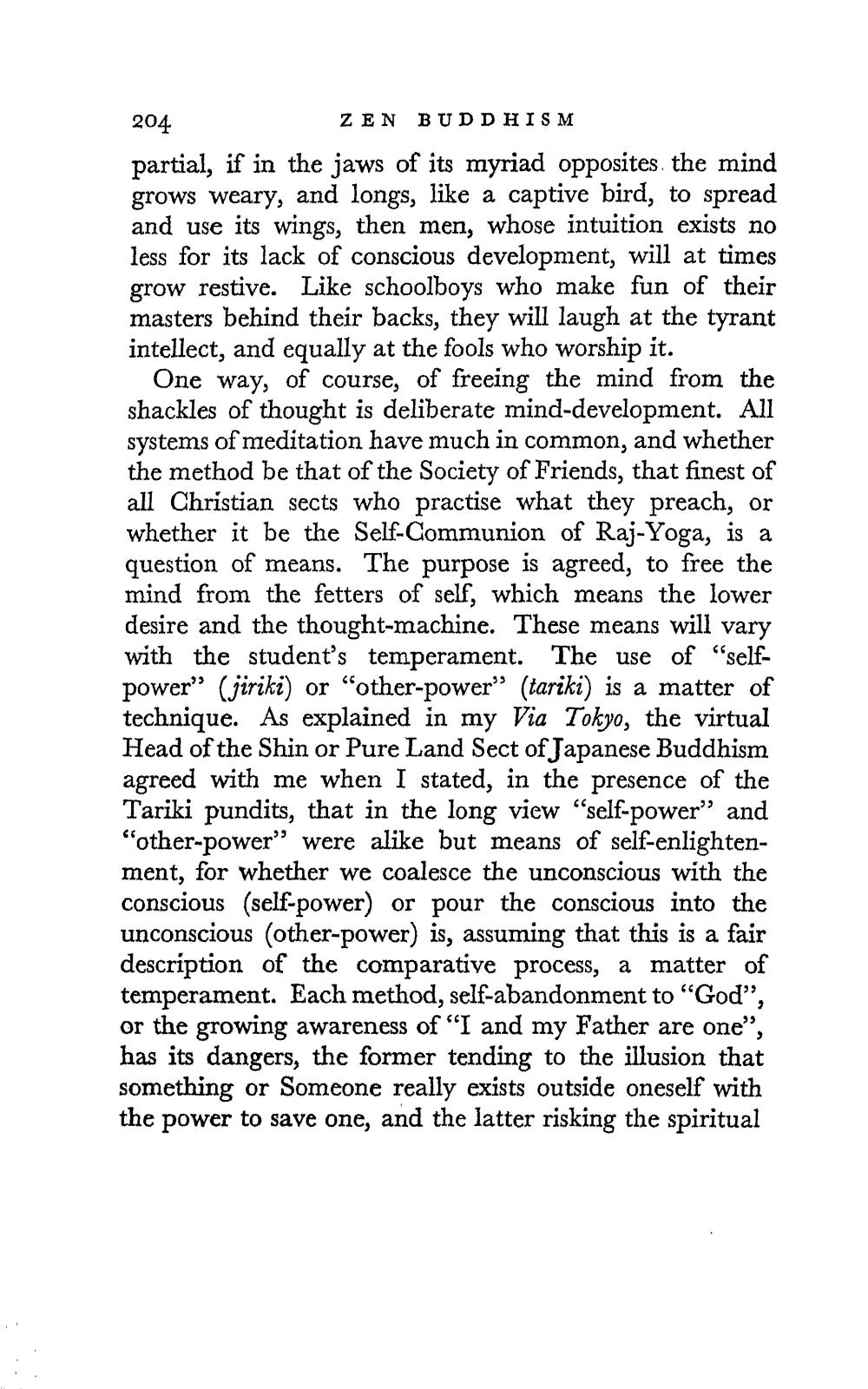________________
204
ZEN BUDDHISM partial, if in the jaws of its myriad opposites the mind grows weary, and longs, like a captive bird, to spread and use its wings, then men, whose intuition exists no less for its lack of conscious development, will at times grow restive. Like schoolboys who make fun of their masters behind their backs, they will laugh at the tyrant intellect, and equally at the fools who worship it.
One way, of course, of freeing the mind from the shackles of thought is deliberate mind-development. All systems of meditation have much in common, and whether the method be that of the Society of Friends, that finest of all Christian sects who practise what they preach, or whether it be the Self-Communion of Raj-Yoga, is a question of means. The purpose is agreed, to free the mind from the fetters of self, which means the lower desire and the thought-machine. These means will vary with the student's temperament. The use of selfpower" (jiriki) or "other-power" (tariki) is a matter of technique. As explained in my Via Tokyo, the virtual Head of the Shin or Pure Land Sect of Japanese Buddhism agreed with me when I stated, in the presence of the Tariki pundits, that in the long view "self-power" and "other-power" were alike but means of self-enlightenment, for whether we coalesce the unconscious with the conscious (self-power) or pour the conscious into the unconscious (other-power) is, assuming that this is a fair description of the comparative process, a matter of temperament. Each method, self-abandonment to "God”, or the growing awareness of "I and my Father are one", has its dangers, the former tending to the illusion that something or Someone really exists outside oneself with the power to save one, and the latter risking the spiritual




